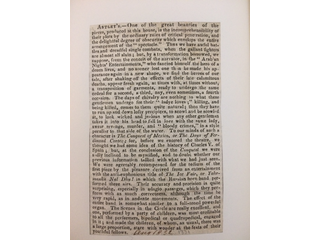Transcription
ASTLEY’S.—One of the great beauties of the pieces, produced at this house, is the incomprehensibility of their plots by the ordinary rules of critical penetration, and the delightful degree of obscurity which envelops the entire arrangement of the “spectacle.” Thus we have awful battles and dreadful single combats, when the gallant fighters are almost all slain; but, by a transformation borrowed, we suppose, from the conceit of the narrator, in the “Arabian Nights’ Entertainments,” who fancied himself the hero of a dozen lives, and no sooner lost one than he made his appearance again in a new shape, we find the heroes of our tale, after shaking off the effects of their late calamitous deaths, appear fresh again, at times with, at times without, a transposition of garments, ready to undergo the same ordeal for a second, a third, nay, even sometimes, a fourth occasion. The days of chivalry are nothing to what these gentlemen undergo for their “ladye loves;” killing, and being killed, comes to them quite natural; then they have to run up and down lofty precipices, to scowl and be scowled at, to look wicked and jealous when any other gentleman takes it into his head to fall in love with the same lady, swear revenge, murder, and “bloody crimes,” in a style peculiar to that side of the water. To our minds of such a character is The Conquest of Mexico, or The Days of Ferdinand Cortez; for, before we entered the theatre, we though we had some idea of the history of Charles V. of Spain; but, at the conclusion of the Conquest we were sadly inclined to be mystified, and to doubt whether our previous information tallied with what we had just seen. We were agreeably recompensed for the tedium of the first piece by the pleasure derived from an entertainment with the anti-euphonious title of The Ice Fair, or Yahrmanka Nal Dhu! in which the Russian horn band performed three airs. Their accuracy and precision is quite surprising, especially in adagio passages, which they perform with as much correctness, although the time be very rapid, as in andante movements. The effect of the entire band is somewhat similar to a full-tones powerful organ. The Scenes in the Circle are really excellent, and one, performed, by a party of children, was most creditable to all the performers, bipedical or quadrupedical, engaged in it; and made the children, of whom, as usual, there was a large proportion, stare with wonder at the feats of their youthful fellows.
